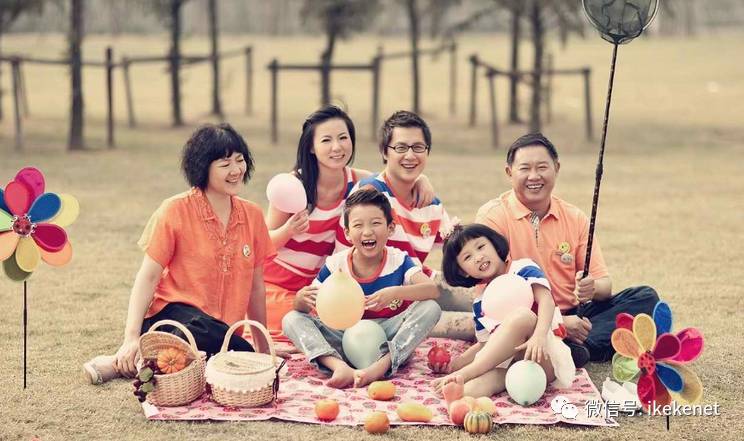Thisis6 MinuteEnglishfromBBCLearningEnglish. com.
这里是bbclearningenglish. com英语六分钟节目。
Chris:Helloandwelcometo6 MinuteEnglishfromBBCLearningEnglish. I'mChrisandwithmetodayisNeil.
大家好,欢迎收听英语六分钟节目,我是克莉丝,今天和我一起主持节目的是尼尔。
Neil:Hithere.
大家好。
Chris:NowNeil, whatisyourmosttreasuredpossession?
尼尔,你最珍贵的财富是什么?
Neil:Well, that'sinteresting– mymosttreasuredpossessionwouldhavetobe… myguitar.
这个问题很有趣——我最珍贵的财富是我的吉他。
Chris:Iwouldprobablysayoneofmymosttreasuredpossessionsisapaintingbymygrandfather.
我可能会说我祖父画的一幅画是我最珍贵的财富之一。
Neil:Oh, artinthefamily!
家庭中的艺术!
Chris:So, todaywe'rediscussingpossessions. Butbeforewegetstarted, it'sthequizquestion. Let'sseeifyoucanansweritcorrectly.
所以,今天我们讨论的是财产。但是在讨论开始之前,先来问个问题。看看你能否答对。
Neil:OK, I'mreadyforachallenge.
好的,我准备好迎接挑战了。
Chris:Thequestionis: intermsofdistance, whatistheworldrecordlengthforaphotographyexhibition? Isita) 90 metresb) 1 kilometreorc) 600 kilometres
问题是:与长度有关,世界上最长的摄影展有多长?90米,1公里还是600公里?
Neil:Well, Ihavenoidea, soI'mgoingtogoforthecompletelyridiculous: c) 600km.
我不知道。我准备选最荒谬的,600公里。

Chris:OK, we'llfindouttheanswerattheendoftheprogramme. Now, Iaskedaquestionaboutphotographybecauseintoday'sshowwe'retalkingaboutaseriesofphotographsfromChina.
好的,我们会在节目的最后再揭晓答案。我问了一个与照片有关的问题,因为今天我们将讨论一系列来自中国的照片。
Neil:FromChina? Sowhatarethesephotosabout?
来自中国?这些照片是关于什么的?
Chris:Well, aphotographercalledHuangQingjunhasbeentravellingaroundChinaforoveradecade, takingphotosoffamiliesstandingoutsidetheirhouses.
一个叫HuangQingjun(黄清军)的摄影师曾在中国旅行了十多年,拍摄了很多一家人站在其房子外面的照片。
Neil:What'sspecialaboutthat?
这有什么特别的?
Chris:Well, heasksthefamiliestoplacealltheirbelongingsinfrontofthehousetoo.
他还让这些家庭把他们家里的物品放在房子前面。
Neil:Alltheirbelongings? Soeventhingsliketablesandchairs?
他们所有的家当?甚至是桌子和椅子?
Chris:Yes, asmuchastheycanmove! Now, I'vegotsomeclipsfromareportbyBBCcorrespondentBethMcLeod. Shedescribesoneofthephotos– canyouhearwhatobjectsshesees?
是的,只要是他们能搬动的!现在,来听一段BBC记者贝丝·麦克劳德的报告。她描述了其中一张照片——你能听出她看到了什么吗?
Onadusty, grey, patchofland, apairofpinkslippers, somecookingutensils, abicycleandsomeblanketsareneatlyarrangedinrows. Standingamongtheirbelongingsanelderlycouplefacethecamera, unsmiling… ADVDplayer, telephoneandtelevisionarebalancedonablockofconcreteintheforefrontofthephoto, andsomestringandrocksholdasatellitedishatanangleontheground.
在一片尘土飞扬的灰色土地上,一双粉色拖鞋,一些炊具,一辆自行车和一些毯子,整齐地排列成行。一对老年夫妻与他们的物品站在一起,严肃地看着相机,……在照片前方,一台DVD播放机、一部电话和一台电视机平衡地摆放在混凝土上,在地上,一些绳子和石头把一个卫星天线盘固定在了一个角度。
Chris:Whatobjectsdidshedescribeseeinginthephoto?
她看到了照片中的什么物品?
Neil:Apairofslippers!
一双拖鞋!
Chris:That'scorrect.
正确!
Neil:Somecookingutensils– sothingslikespoonsandknives. Abicycle, someblankets, aDVDplayer, atelephone.
一些炊具——比如勺子和刀具。一辆自行车、一些毯子、一部DVD播放器、一部电话。
Chris:Verygood. Therewasonemorethingtoo– asatellitedish.
非常好。还有一个东西——一个卫星天线盘。
Neil:So, whywereallthesethingsplacedoutsidetheirhouseforthephotographertotakeaphoto?
那么,为什么要把这些物品都放在他们房子的外面来让摄影师拍照呢?
Chris:ThephotographerwantedtocapturethelivesandmaterialgoodsofruralChinesefamilies. ThephotosrevealsomeofthesocialchangeshappeningacrossChina.
摄影师希望能捕捉到中国农村家庭的实际生活情况和物质条件。这些照片揭露了中国发生的一些社会变化。
Neil:Becauseofthesepeople'sbelongings?
因为这些人民的财产吗?
Chris:Yes, wecanseethemanydifferentpossessionsofthesefamilies– someoftheirthingsareveryold-fashioned, butsomearemuchmoremodern. WeiliangNieoftheBBC'sChineseServicedescribeshowtheconsumergoodsboughtbypeopleintheseruralareashavechanged.
的确,我们能看到这些家庭有着不同的财产——有的很过时,但有的非常时髦。BBC的中国记者WeiliangNie(聂伟良)介绍了农村地区的人民所购买的物品已经开始发生变化。
Inthepast, itisunimaginablepeoplelikethesepoorfarmersorpeasantscouldhaveaccesstoatelevisionoratelephone… Theystillhavethesesewingmachineswhichyoupedalwithyourfeet. ThesearethethingsthattheChineseusedtohaveasvaluablestuff30 or40 yearsago.
在过去,难以想象这些贫困家庭的人们或农民能拥有电视机或电话… 他们仍然使用脚踩缝纫机。这些是中国人在30或40年前曾经拥有的有价值的东西。
Chris:So, havingatelevisionortelephonewasoncealuxury, butnowtheyareseenbymanyasnecessities.
所以,电视机或电话曾经是奢侈品,但现在,它们都是生活必需品。
Neil:Wasasewingmachineacommonitemforpeopletoownyearsago?
过去,缝纫机是人们家中的普通物品吗?
Chris:Inthe1950s, asewingmachinewasoneofthe'fourbigthings'thatChinesefamilieswouldcrave. Thethreeothersthingswere: abicycle, awatchandaradio.
五十年代,缝纫机是中国家庭渴望的四大件之一。另外三大件是:自行车、手表和收音机。
Neil:Bythe1980s, thefourbigthingsthatpeoplewantedwere: atelevision, awashingmachine, aricecookerandafridge.
到了80年代,人们想要的四大件是:电视机、洗衣机、电饭锅和冰箱。
Chris:Thisseriesofphotosprovidesasnapshotofpartofthissocialchange.
这一系列照片展现了一部分社会变化的缩影。
Neil:Isthephotographercriticalofthesechanges, doyouthink?
摄影师是这些变化的关键,你觉得呢?
Chris:Well, thereisasensethathe'scapturingawayoflifethatisslowlybeinglost.
的确,有种这样的感觉:他在捕捉正在缓慢消失的生活方式。
Neil:Yeah, Iseewhatyoumean. Puttingalltheirbelongingsoutsidetheirhousemakesitlookasiftheyaremovingaway.
是的,我明白你的意思,把他们的财物放在房子外面,看起来好像是他们要搬离这里。
Chris:Inthisfinalclip, BethMcLeoddescribesonefamilywhoaredoingjustthat– movingaway:
在最后一段报告中,贝丝·麦克劳德描述了一个正在搬家的家庭。
Inonephoto, afamilyposenexttoahousethathastheChinesecharacterfor'teardown'writtenonit. It'soneofmanyolderdwellingsdemolishedtomakewayfortowerblocksinarapidlychangingChina.
在一张照片中,一个家庭站在房子旁边,房子上写着“拆迁”两个汉字。中国正在快速发展,为了给高层建筑让路,众多旧住房被拆迁,它只是其中一座。
Chris:Someoftheseruralareasarebecomingmorebuilt-upandurbanised.
一些农村地区正朝着城市化的方向发展。
Neil:It'squitesadreallythatthisfamilyarelosingtheirhome.
令人难过的是,这些人正在失去他们的家园。
Chris:Butthephotographerhimselfbelievesthesethingsareacauseforoptimism. Buildingroadstotheseremoteareasmeanspeoplecanmovearoundmorefreely.
但摄影师自己认为这种改变是乐观的。为遥远的地区铺路意味着这里的人们可以更自由地进出。
Neil:Andbyprovidingelectricity, theycangetnewsandideasthroughtheTVorinternet. Isthephotographerplanningoncontinuingthisproject?
为他们提供电力,他们就能通过电视或因特网来获得新闻和消息。摄影师计划继续他的项目吗?
Chris:Yes, hewantstophotographmoreofChina'surbanfamilies.
是的,他想为更多的中国农村家庭拍照。
Neil:Iimaginetheamountofstuffpeopleowninurbanareasismuchgreater.
我想城市里的人拥有的财产更多。
Chris:Ifyoucomparethephotoofawealthyfilmdirectorwiththephotoofapoorfishingfamilywholiveonaboat– theyarepolesapart.
如果你把富有的电影导演家庭的照片和住在船上的贫穷渔民家庭的照片相比较,就会发现,他们真的是天壤之别。
Neil:Almostallthebelongingsthefishingfamilyownarerelatedtocooking, whereasthefilmdirectorownsacarandalargeflat-screenTV.
渔民家庭所拥有的所有东西无非就是做饭用的厨具,而电影导演拥有车、大平面电视。
Chris:Itmakesyouwonderifwereallyneedallourpossessions.
这会让你开始怀疑我们是否真的需要这些财物。
Neil:Thatisverytrue… buthavingsaidthat, there'snowayIcouldlivewithoutmyguitar!
是的,但话说回来,离开我的吉他,我就无法活了。
Chris:OK, let'sreturntothequizquestion: whatistheworldrecordlengthforaphotographyexhibition? Isita) 90 metresb) 1 kilometreorc) 600 kilometres
好的,来看我们的问题:世界上最长的摄影展有多长?90米,1公里还是600公里?
Neil:AndIwentforc) 600 kilometres.
我选的是600公里
Chris:YouwerewrongI'mafraid– itwasb) 1 kilometre. Aphotographyexhibitioncalled'Jump4London'includedover80,000 imagesofpeoplejumpingintheair– that'salotofphotos!
你答错了——答案是1公里。一个叫“为伦敦而跳跃”的摄影展包括超过8万张人们在空中跳跃的照片——真的是很多照片!
Neil:Yeah, 80,000 – myword!
8万——天啊!
Chris:OK, that'sallwehavetimefortoday. Dojoinusagainformore6 MinuteEnglishfrombbclearningenglish. com. Byefornow!
好的,以上就是今天节目的全部内容了。欢迎继续收听我们下一期的BBC六分钟。再见
Neil:Goodbye!
拜拜!
Thatwas6 MinuteEnglishfromBBCLearningEnglish. com.
以上是bbclearningenglish. com英语六分钟节目。